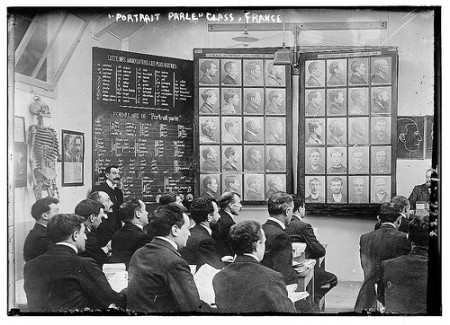In brief
Plenty of THATCamp participants are interested in picking up new skills from one another, so you might want to pre-arrange a few workshops to take place during your THATCamp. (Note: our workshop series used to be called “BootCamp,” a term we have now deprecated. Also note that our Mellon fellowship program has ended as of 12/5/2011.)
Finding workshop instructors
As a THATCamp organizer, you might decide up front what workshops you will offer and who will teach them, or you might crowdsource those decisions to your THATCampers, or else you might do some combination of both. You might know some talented people in your area (perhaps even you or your co-organizers) who would be more than willing to teach a workshop at your THATCamp, and you could therefore set it all up beforehand. Alternatively, you can ask people who apply to your THATCamp “What would you like to learn?” and/or “What would you be willing and able to teach?” and plan your workshop offerings based on the answers to those questions.
If your THATCamp applicants have indicated that they’d like a workshop on a particular skill or topic, but you can’t find a qualified volunteer instructor in your region or among your applicants, post to the THATCamp forums with a request for help.
Scheduling the workshops
Organizers are increasingly saying that having a separate day dedicated to workshops is a good idea. See, for instance, THATCamp Virginia’s dedicated workshop day, which took place before an additional day and a half of unconferencing. Some workshops have run concurrently with unconference sessions, however, as an educational track through the unconference, also with good success: see for instance THATCamp New England’s schedule with workshop sessions incorporated. (Note: many participants did say in the evaluations that they’d have preferred that the workshop training sessions take place on a separate day.)
Giving participants workshop information
On a page on your website, you should give the following information for all workshops:
- Title
- Instructor’s name (preferably linked to a profile)
- Prerequisites (knowledge, skills, accounts, software)
- Difficulty level of proposed workshop
- Description
Curriculum
We have developed a broad curriculum to help you plan workshops at THATCamp. There can be as many workshops as you like, and they can all fit under one skill heading or under several different skill headings. We advise that all workshops should be introductory (especially those dealing with markup and programming languages; assume no prior knowledge of coding) and should emphasize first principles, background, and context; workshops other than those under the first two headings should also include at least one hands-on exercise (though nothing harder than “Hello, world!”). Workshop examples are given below; other pertinent workshops are more than welcome. See the page on getting training at workshops for examples of past and upcoming workshop offerings.
- Understanding the history of technology and the humanities
- Brief history of computing
- Brief history of Digital Humanities
- Understanding ongoing legal and social issues related to technology and the humanities
- Copyright issues in the humanities
- Economic issues in scholarly communication
- The Google Book Search settlement
- Finding and managing humanities information
- Google Scholar / databases
- Google Book Search
- Zotero / Mendeley / CiteULike
- Digitizing, editing, organizing, publishing, and preserving humanities materials
- Text / image / audio / video digitization
- XML
- XSLT
- TEI
- EAD
- Omeka
- Metadata standards
- Indexing
- Linked data
- Databases and data structures
- Collecting, interpreting, analyzing, and manipulating humanities data
- Text mining
- Visualization tools
- Web analytics
- Yahoo! Pipes
- Open Layers
- ARCGIS
- Creating, presenting, and publishing humanities study
- HTML
- CSS
- Photoshop
- Graphic design
- Information architecture
- Typography
- Usability testing
- CommentPress / digress.it
- WordPress
- PowerPoint / Keynote / Prezi
- Video creation
- Audio / podcast creation
- Working collaboratively, both formally and informally
- Project management
- Project budgeting
- Getting project funding
- Wikis
- Google Docs
- Social media
- Using programming languages and tools
- JavaScript
- PHP
- MySQL
- UNIX
- Perl
- Regular expressions
- Yahoo! Pipes
- Google Inventor for Android



